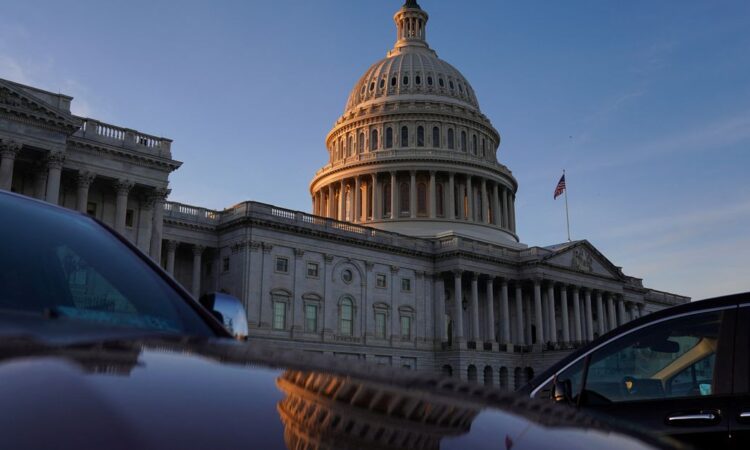
WASHINGTON, Dec 13 (Reuters) – Negotiators in the U.S. Congress on Tuesday said they had reached agreement on funding the government through the end of its current fiscal year, as lawmakers scampered to meet a midnight Friday deadline when existing funds expire.
They did not say how much money they had agreed on, providing no details in statements from three key appropriations negotiators, Democratic Senator Patrick Leahy, Republican Senator Richard Shelby and Democratic Representative Rosa DeLauro.
“If all goes well, we should be able to finish an omnibus appropriations package by Dec. 23,” Shelby said in a statement.
The news came hours after the House began moving a stopgap spending bill to avoid a partial shutdown that would otherwise begin on Friday, providing time to pass the sweeping full-year bill, which was expected to include more than $1.5 trillion in funding and will run through the end of the fiscal year on Sept. 30, 2023.
A first, procedural vote on the stopgap legislation was set for Wednesday.
The full-year “omnibus” bill is also expected to contain new emergency funds to aid Ukraine in its battle against Russian forces.
Ukraine could get billions more, after Biden asked Congress last month for $37 billion.
It also is expected to fold in an unrelated bill reforming the way Congress certifies U.S. presidential elections.
The latter is aimed at avoiding a repeat of the deadly turmoil of Jan. 6, 2021, when supporters of then-President Donald Trump tried to stop the certification of Biden as the winner of the 2020 presidential election.
Senate Minority Leader Mitch McConnell had said his Republicans want work on the omnibus bill wrapped up by Dec. 22. “We intend to be on the road going home on the 23rd,” he told reporters ahead of the agreement.
Any negotiations on the funding bill would get more complicated next year, when Republicans take majority control of the House.
Conservative Republicans have been clamoring for deep domestic spending cuts Democrats want to avoid.
Reporting by Katharine Jackson, Gram Slattery, Moira Warburton and Richard Cowan; Editing by Andy Sullivan, Mark Porter, Jonathan Oatis, Deepa Babington and Lincoln Feast
Our Standards: The Thomson Reuters Trust Principles.






